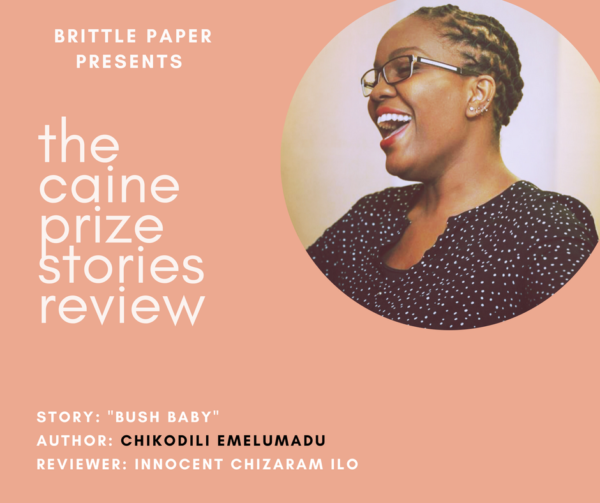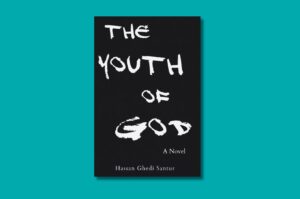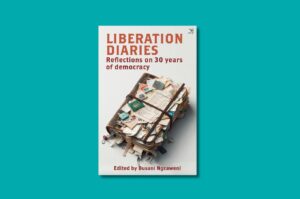It is a Brittle Paper tradition to review the five stories shortlisted for the Caine Prize. Through this, we hope to open up conversations around the stories, to find out what is interesting or innovative about them. After last week’s opener, following the announcement of the shortlist, we bring you our second #CainePrize2017 story review: Chikodili Emelumadu “Bush Baby.”
Chikodili Emelumadu is a broadcaster and blogger, with a BA in English language and literature from Nnamdi Azikiwe University, Awka, and an MA in Cross Cultural Communications and International Relations from the University of Newcastle upon Tyne. Her fiction has appeared or is forthcoming in Apex, Eclectica, Luna Station Quarterly, Omenana, One Throne and Sub-Q magazine. She was a 2015 Shirley Jackson nominee.
Her shortlisted story, “Bush Baby,” is reviewed by Innocent Chizaram Ilo.
*
2017 Caine Prize Story Review: Chikodili Emelumadu’s “Bush Baby”
Although it opens in the very familiar It-was-a-dark-and-stormy-night way of most horror stories, technically-speaking, Chikodili Emelumadu’s “Bush Baby” blurs genre lines, dipping also into realism and mysticism. And it does this with a pacing so fast, it hardly gives the reader any chance to breathe.
The narrator, who is addressed as Ihuoma or Sister or Madam throughout the story, is working late to beat some deadline when someone bangs on her gates. Enter the narrator’s younger brother, Okwuchukwu, who is in some kind of trouble and needs to stay in Sister’s house. The reader is loaded with back stories of how Okwuchukwu is a modern day prodigal son: an alcoholic, an extravagant spender, a womanizer, a gambler. The writer could have compensated for jolting us between time lags by revealing why Sister thinks Okwuchukwu is the reason their mother is dead. Spoiler alert: this is not resolved even when the story ends.
Night passes. Morning comes and Okwuchukwu tells Sister he stole a bush baby’s mat. The mystical mat (“a thing of beauty; it is crimson and black and gold, stiff like asoke straight from the loom. Its tassels are fine threads of gold and white thread”) will be used to offset his debts and regain his ownership of the houses he gambled away. Okwuchukwu rambles on about some men leaving him to endure a seven-day torture by the bush baby:
Bastards! They told me when I came back, laughing in my face. Of course it had been too easy. The spirit lets you steal its mat, so it can torment you. Seven days it punishes you….’ His voice breaks and he clears it. When he wipes his eyes this time, there are eyelashes in his palm. He scrutinises them, indifferent, before blowing them away. ‘You survive, you get rich. You don’t, you die. What kind of people condemn a man to die over a few measly debts?
The story continues to sprint.
Idi, Ihuoma’s gateman, quits his job the next day and leaves with his wife. Reason: he just can’t stand the evil in the house. He gives some tips to his Madam on fighting the bush baby: “You go dey naked fight am. Na to naked yourself. You go dey naked fight am. Only person wey no want im property, na im fit fight gwei-gwei.” And Ihuoma, like the determined abroad returnee that she is, braces herself, strips and waits for the monster.
The story ends.
You read it again hoping to discover hidden gems but the story is now an abandoned minefield.
There are some strengths in “Bush Baby.” The first is its opening and closing parts. The second is the exquisite way the writer handles sibling love. This unconditional love shines through as we see Sister putting everything she has at stake to save her brother’s life. This is a story you give your siblings when they start complaining about loving you too much. There are also poignant descriptions:
His silhouette pauses.
A patch of sweat shaped like a lightbulb.
Okwy exhales and his fingernails tinkle against the tumbler as he receives it.
But beyond these things, “Bush Baby” stumbles. Sometimes, Chikodili’s narrator reads as unreliable and forced. She must have supernatural powers to hear the faint clinking of Idi’s belt from the gatehouse. Even in intense situations, like when she persuades her brother to tell her what is going on, the narrator is all cool and collected. She is too alert and takes note of every detail as if telling this story is more important than making her brother tell her the truth. When the bush baby attacks, she somehow, in the midst of the pandemonium, sees her brother who “claws at his ears, making guttural noises.” While allowing complementary viscerality in a story about the unseen, these descriptions, given their unconvincing timing, elicit suspicion. And with this eagerness to describe, one is led to wonder why, when it matters, the writer offers only something shallow, nothing introspective from a character whose beloved only sibling supposedly faces something as definitive as death.
Idi sighs. He touches my forearm. I don’t think he’s ever touched me before. Loneliness thrashes my soul. From the gesture, I know my brother is going to die. The extent of loneliness is staring me in the face.
“Bush Baby” struggles as a horror story because, as much as it tries with offstage terror, it rarely succeeds in stoking fear. Apart from Ihuoma, no character is memorable. Idi, Idi’s wife and, in most cases, Okwuchukwu are all hastily-cut origami pieces that slip from memory as soon as the reader reaches the end. The narrative milks the stereotype that bush babies are evil monsters. The galago—the actual name for a bush baby—is a hunted specie, and as much as it is delightful to see it take centre stage in fiction, the animal rights activist in me wanted so much more than a mere repetition of what we have always known.
Disturbingly, the writing also fails in the one area where a story picked by a high-profile prize simply shouldn’t: editing. Here is an embarassing full stop where a comma should be.
‘We have to move you from here.’ I say, filled with urgency.
And here is nothing where a quotation mark is expected.
My brother is nearly asleep. ‘They are waiting for me to die, so they’ll take the mat.
‘I’m going to die. We are all dead in our family. Dead… dead.’ He snores softly.
The Caine Prize has a longstanding tradition of shortlisting at least one story that would stir debates on why it should or shouldn’t be on the shortlist. This year, “Bush Baby” clinched that slot. To call it the weakest story on the shortlist is not being economical with the truth.
The story reminds me of a popular Nigerian folktale about two women who had to cook for a boy to prove who, between them, was the boy’s real mother. The first woman filled her pot with fish, beef and spice while the second woman made do with tiny shreds of meat and salt. To cut the story short, the second woman won the contest. Like the first woman’s food, Chikodili’s story has all the potentials of a brilliant effort—a fantastic storyline, strong diction, and a promising use of present-tense narration—but it still fails to convince.
Speculative fiction by African writers—horror, fantasy, science fiction—is taking the literary world by storm, so it is refreshing to see some of them, like “Bush Baby,” being recognized by mainstream “literary fiction” awards. These stories are marked by well-paced narration, remarkable characters and powerful imagery that would hit readers’ emotional cores. Sadly, “Bush Baby” makes a poor case for itself. But it’s on the Caine Prize shortlist, so what do I know?
*
Read Chikodili Emelumadu’s “Bush Baby.”
**************
About the Author:
Innocent Chizaram Ilo. Works at student. Iggy and Litro Alumnus. Jollof rice enthusiast. African Speculative Fiction reader and writer-ish. Loves hate mails.










Chukwuemeka September 12, 2017 03:04
I read this in the wee hours of last night, somehow captivated by the beginning line, and trying to get along, and somehow distracted; finding the following paragraphs tumultuous. This story, I would say is of a compassionate story of siblings love and one exciting twist to it was the story of 'gwei-gwei' - crying bush baby. Never really check it was for real, but relative and friends who attended unity school, mainly girls - only school laid in lonely forests often came back talking about 'Madam kion-kion', a description for a sound imitating a crying baby which mainly came at night. I almost stopped though, hoping I would read it later, perhaps after reading some reviews, but then somehow the bush baby part got be transfixed and I felt a surging desire to know more, and in knowing more, I held my breath in my mouth reading how the main character would do everything to save her only brother life, if it means fighting the gwei-gwei naked. it doesn't end there now that the gwei-gwei cried from the brother mouth. Cool but a scary story sha. Cool but scary fiction though.